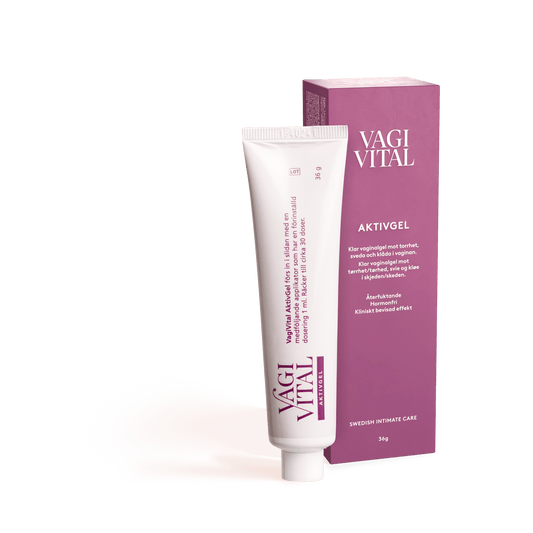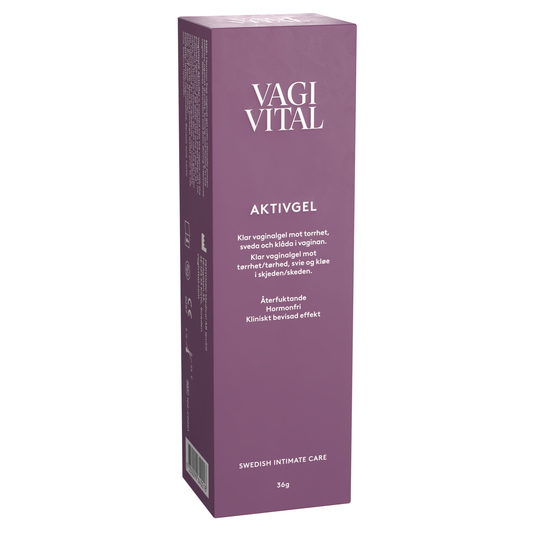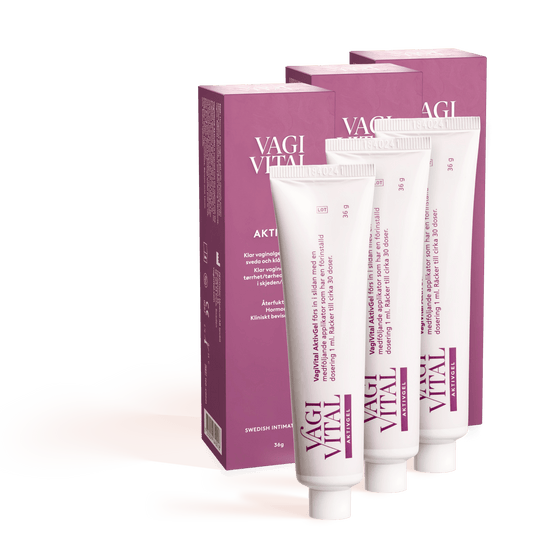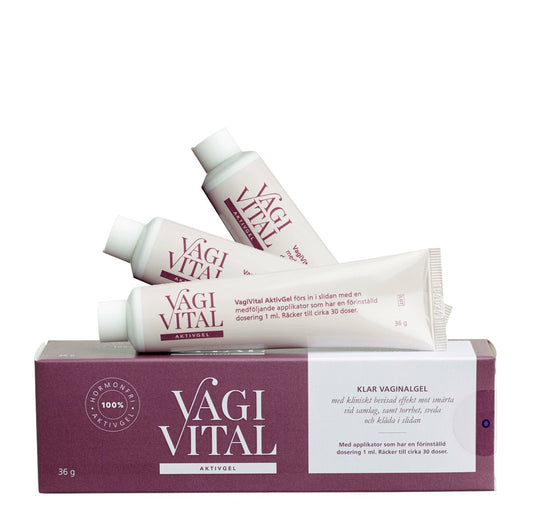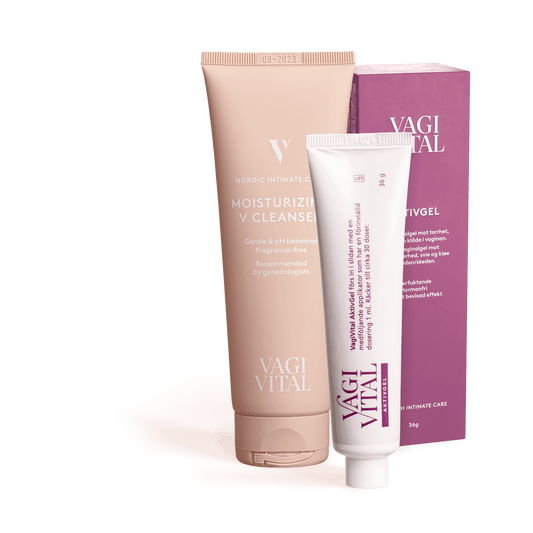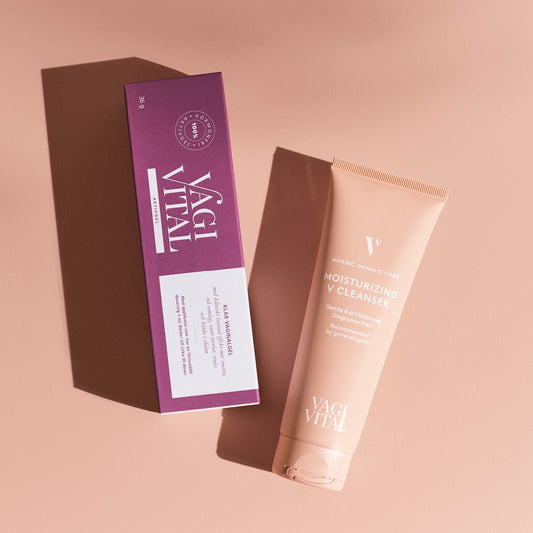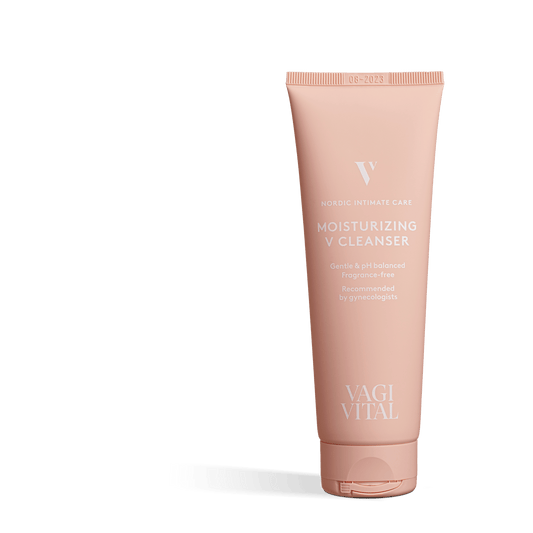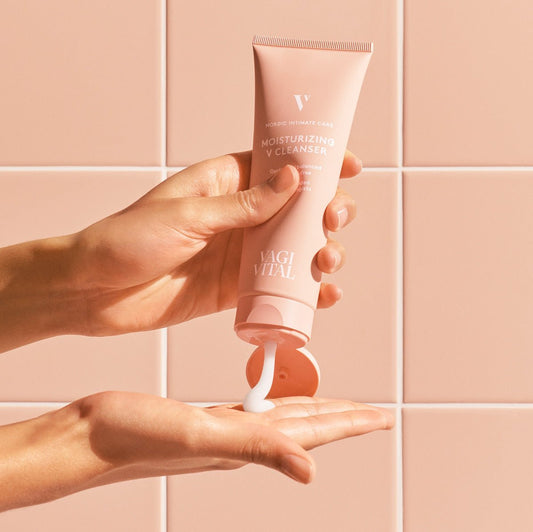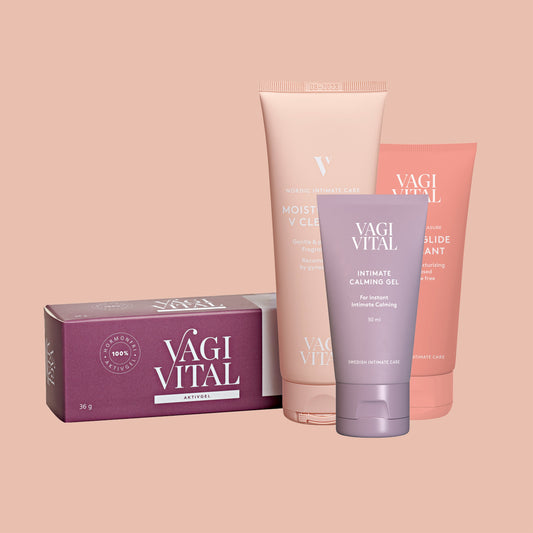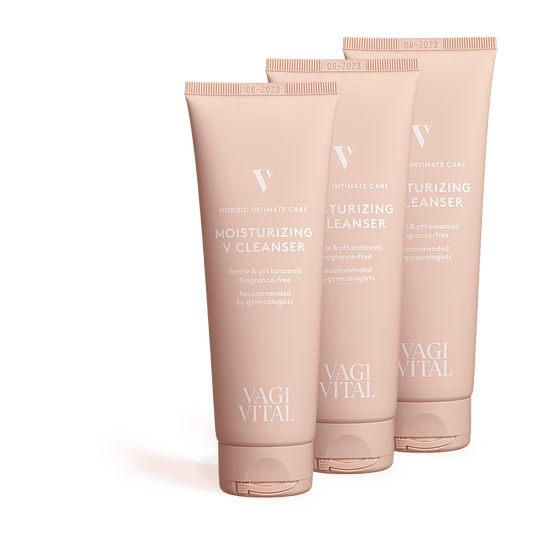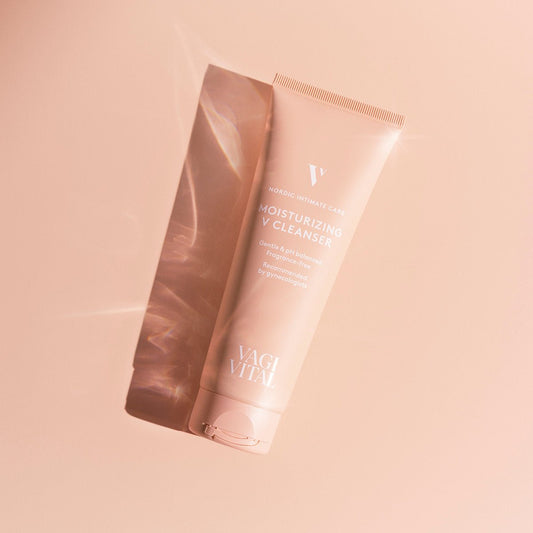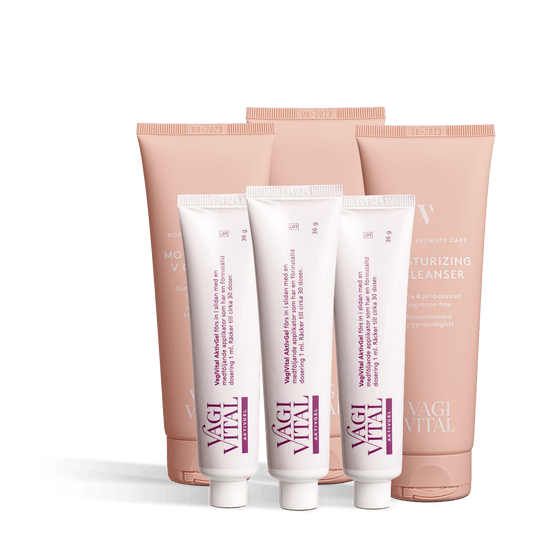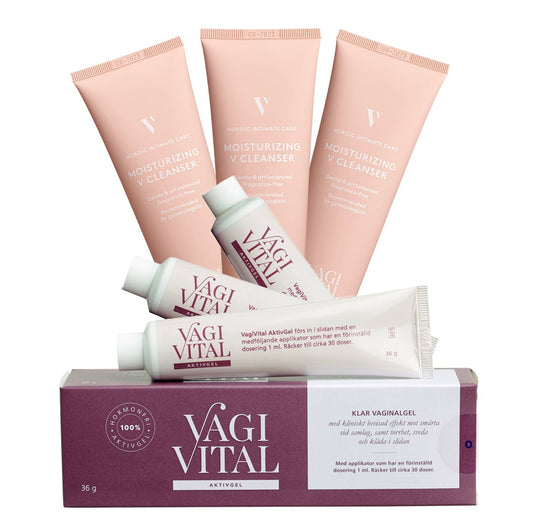Condoms – protect against sexually transmitted infections and support the microbiome
When we talk about condoms, most people first think about their role in protecting against sexually transmitted infections (STIs) and as a reliable contraceptive. However, research shows that condom use also plays an important role in maintaining and supporting a healthy vaginal microbiome and overall intimate health.
Condoms – support vaginal health
During unprotected sex, not only semen but also bacteria from your partner can be transferred. In some cases, this can disturb the delicate balance of vaginal bacteria. Using a condom reduces the risk of introducing foreign bacteria into the vagina, which helps maintain its natural balance. Studies have shown that women who regularly use condoms have a lower risk of bacterial vaginosis, highlighting a clear link between condom use and microbiome health.
But condoms are more than just protection; they function almost like a “microbiome-friendly barrier.” Condoms prevent foreign bacteria from competing with beneficial bacteria, reduce the risk of inflammation (vaginitis), and help keep the vaginal environment stable. This aspect of condom use is not always widely recognized, but it plays an important role in maintaining vaginal health.
Choosing the right condom and lubricant makes a difference
There is a wide variety of condoms and lubricants available. Latex condoms are most common, but some people may experience irritation from latex or from added lubricants and spermicides. Irritation can negatively affect the microbiome, as it can cause local inflammation that disrupts the balance and reduces the number of beneficial bacteria. Alternatives such as polyurethane or polyisoprene condoms are often better tolerated by people with sensitive skin.
When it comes to lubricants, there are several types, and your choice can affect both comfort and vaginal health. Water-based lubricants are the most popular and compatible with most condoms and sex toys. They are easy to clean, but some contain added sugars or harsh chemicals, which can affect vaginal pH. Silicone-based lubricants are usually more slippery than water-based ones and do not dry out as quickly. They are generally pH-neutral and less likely to cause irritation but should not be used with certain silicone toys as they can damage the material. Oil- or fat-based lubricants (e.g., coconut oil or commercial oils) can feel softening and natural but may reduce condom effectiveness and, if used frequently, some can disturb vaginal balance.
Choosing the right combination of condom and lubricant can therefore be just as important as using the condom itself.
Condoms are fantastic
In short: using condoms is not only protection against sexually transmitted infections but also supports beneficial bacteria, helps prevent imbalances, and maintains vaginal health. Choose a condom without irritating additives – latex, polyurethane, or polyisoprene depending on what your body tolerates best. Use a pH-neutral lubricant. Avoid lubricants with harsh chemicals or high sugar content. If you experience irritation, itching, or unusual discharge, switch products or contact a healthcare professional.
Recommended products for you
- Choosing a selection results in a full page refresh.
- Opens in a new window.
